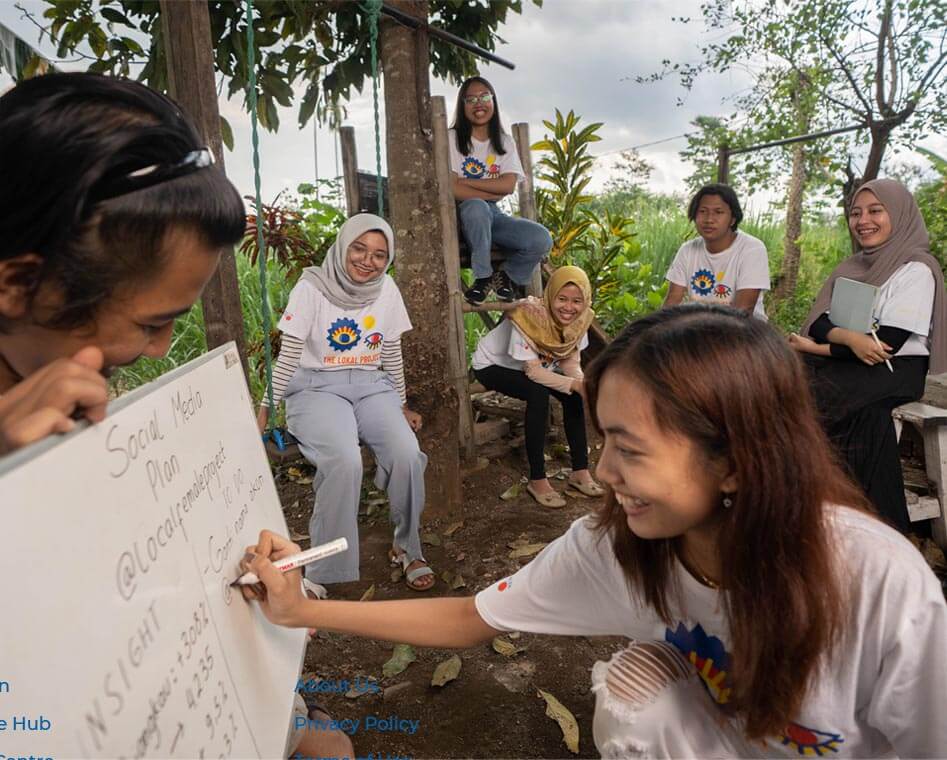Making Peace Work for Everyone: Training on Women, Peace and Security in the Cambodia Context
Event Type: Training
Date: November 18, 2024 to November 19, 2024
Venue: Phnom Penh
The meaningful engagement of women in peace and security enhances both the durability and quality of peace. Research on peace processes from the past 35 years clearly shows that civil society organizations (CSOs) and women’s participation boost the chances of a peace agreement lasting at least 15 years.[1] This correlates with the fact that societies with greater gender equality are generally more peaceful.[2] Yet, despite this evidence, women’s participation in peace and security remains strikingly low.
UN Security Council Resolution 1325 on Women, Peace, and Security (WPS), adopted unanimously in October 2000, emphasized the equal participation and full involvement of women in all efforts to maintain and promote peace and security through four pillars: Participation, Prevention, Protection, and Relief and Recovery. In the years since, nine additional resolutions on Women, Peace, and Security have been adopted, comprising what we collectively refer to as the WPS Agenda. This has created a robust framework for implementing the WPS Agenda and reinforced global commitments, treaties, and conventions on women’s rights, including the 1979 Convention on the Elimination of All Forms of Discrimination Against Women (CEDAW) and the 1995 Beijing Declaration and Platform for Action.
In Southeast Asia, Cambodia has played a key role in shepherding the development of the ASEAN Regional Plan of Action on Women, Peace and Security (ASEAN RPA WPS), which has also inspired several ASEAN Member States in developing the National Action Plans on Women, Peace, and Security (NAP WPS). In recent years, there has been a significant momentum within the region to advance the implementation of the RPA WPS as well as the localization of RPA into national and local contexts. This is a testament to commitment to advancing the WPS Agenda within ASEAN and ASEAN Member States, which is unprecedented during the first two decades of the landmark adoption of UNSCR 1325, partly due to the underrepresentation of the region in the UN Security Council and partly because of the common misunderstanding that the WPS agenda only applies exclusively in armed conflict contexts.
Over the past 5 years, ASEAN and its various Member States have demonstrated a lot of interest in the WPS agenda including its potential relevance to specific national/local contexts that are very diverse in Southeast Asia. Given the evolving international peace and security landscape, the gains of the WPS Agenda are increasingly threatened by rising militarism, pushback against human rights and gender equality, and shrinking civic spaces. Pandemics and climate change exacerbate these threats. The momentum to develop NAP WPS in Cambodia is an encouraging sign to translate commitment into action at the national and local level. However, the effective implementation of the NAP WPS requires political will and policy coherence, supported by well-defined state monitoring and evaluation approaches, financing, localization, and strategic engagement of civil society actors.
As Cambodia builds on the gains of its government’s leadership on WPS, UN Women, in partnership with the Ministry of Women’s Affairs with funding support from the government of Canada, UK, and Australia, is launching “Making Peace Work for Women: Training on Women, Peace, and Security in the Cambodian Context” to enhance the capacities of line ministries and agencies to support the implementation of the WPS Agenda in their spheres of influence and build scaffolding to develop the country’s first NAP WPS.
Objectives
Building on the initial awareness raising workshop organized in December 2023 followed by learning opportunities for Cambodia government stakeholders at the regional and international levels, this training aims to build on the initial knowledge and capacity building to further enhance greater understanding the WPS Agenda, targeting a wider engagement of key relevant government ministries and civil society organizations (CSOs) in Cambodia to create pathways for localization and operationalize of the WPS agenda in the country’s context.
At the end of the training, the participants are anticipated to gain:
- Deeper understanding and appreciation of the WPS Agenda from the global to ASEAN contexts, its architectures and mechanisms.
- Deepen the awareness and knowledge of the four pillars—participation, prevention, protection, and relief and recovery, as well as emerging issues and themes in the WPS Agenda that are particularly relevant to the country context of Cambodia including climate peace and security, cybersecurity and others
- Identify key priority areas for WPS actions in the country, including the role of CSOs in the agenda in defining and implementing the WPS agenda and the benefits of collaboration and partnerships across government, security sector and civil society.
- Identify ways forward to support the development of Cambodia’s NAP WPS
The following results are expected:
- Established a common understanding of the WPS Agenda, particularly its relevance to Cambodia’s priorities for promoting and sustaining peace and security
- Identification of key WPS priorities of government and CSOs that are relevant to the specific country context of Cambodia
- Outline of the concrete ways forward to initiate NAP WPS in the country and potential areas for collaboration between the government and CSOs on WPS priorities
[1] Nilsson, D. (2012) Anchoring the Peace: Civil Society Actors in Peace Accords and Durable Peace. International Interactions, 38(2), pp 243–266. https://doi.org/10.1080/03050629.2012.659139
[2] Hudson, V.M. et al. (2008) The Heart of the Matter: The Security of Women and the Security of States in International Security, 33 (3), (Winter, 2008/2009), pp 7-45

